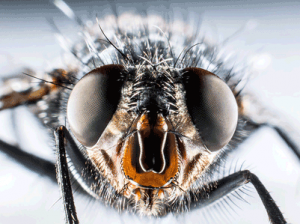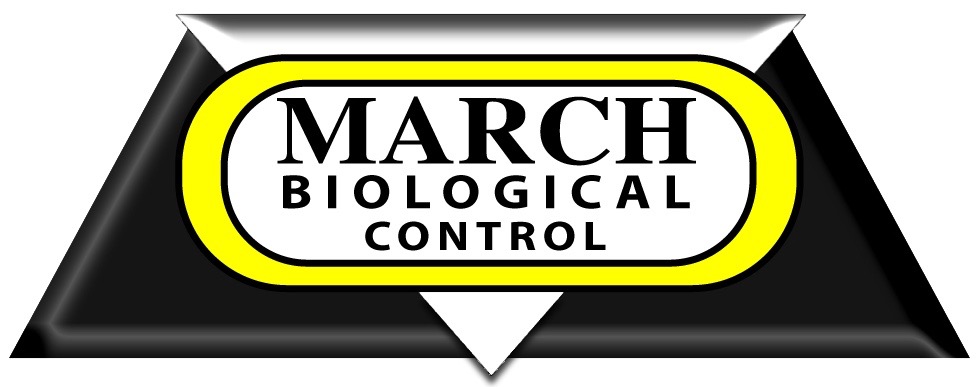Facts about the common fly and how beneficial insects can keep those pesky, annoying, biting buggers under control.
 Musca Domestica is the technical name of a fly and the most common insect we encounter. During the warm months, they invade our homes, picnic areas, backyards and barns. They are elusive, annoying and far too difficult to eradicate completely. They are the uninvited guest that never leaves.
Musca Domestica is the technical name of a fly and the most common insect we encounter. During the warm months, they invade our homes, picnic areas, backyards and barns. They are elusive, annoying and far too difficult to eradicate completely. They are the uninvited guest that never leaves.
Flies live anywhere between 15 and 30 days. Two days or so after an egg is laid a tiny, white maggot, called Larva will hatch. After 1 or 2 weeks the Larva will twice shed its skin. The new skin hardens into a brown cocoon, called the Pupa. Inside, the larva is changing into a winged fly.
These winged insects live about 2 l/2 weeks during the summer, but they can, at lower temperatures, survive up to three months. Some overwinter outdoors in protected locations, or in crevices in buildings.
House flies are not the cleanest of insects. They hang out at such places as barns, sewers and garbage heaps. They feed on fecal matter, discharges from open cuts and sores and all sorts of moist decaying matter such as spoiled meat, fish and eggs.
They are suspected of transmitting at least 65 diseases to us, including typhoid fever, cholera, dysentery, anthrax, tularemia, leprosy and tuberculosis. Flies regurgitate and excrete wherever they land, automatically transmitting disease and germs.
So what’s a person to do? You can use chemical control but pesticides are poisonous to us the land, streams and ponds. And they destroy the beneficial insects.
Fly Parasites are nature’s original method of fly control. These tiny beneficial insects kill the larva before it can develop into a fly. Fly Parasites have been proven highly effective in a wide range of applications such as dairies, horse stables, poultry farms, feed lots, and waste water treatment facilities, anywhere flies breed and cause irritation to animals and humans.
For more information on Beneficial Insects contact Brad the Bugman at 800.328.9140.
